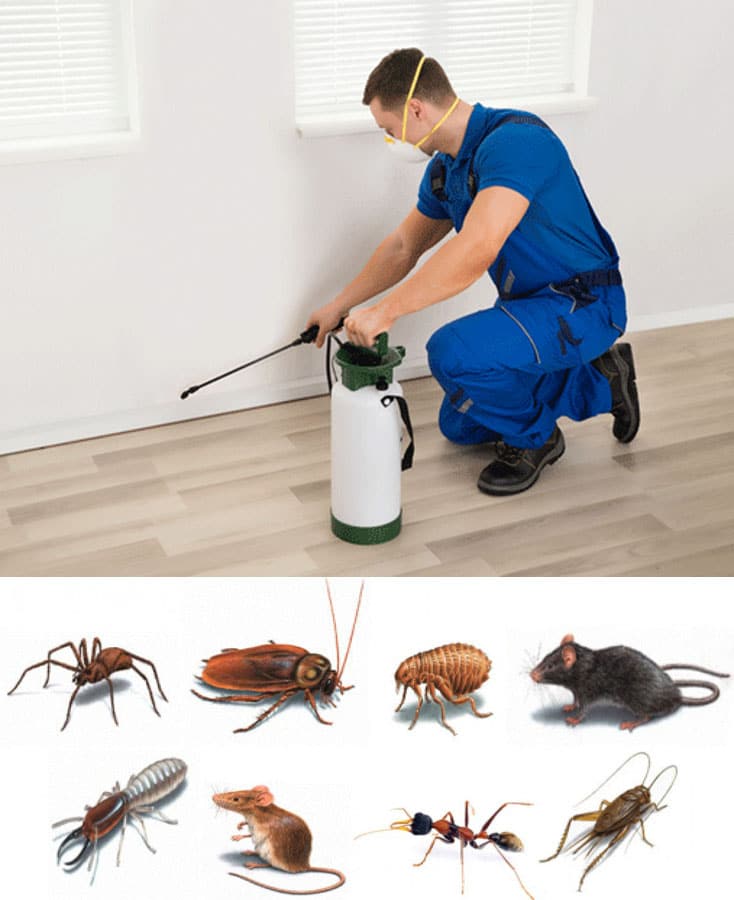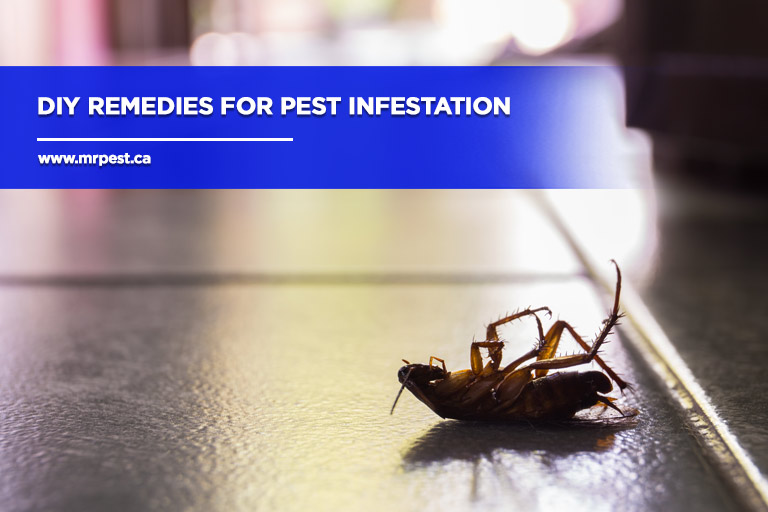Safe and Reliable Bug Control for Lasting Defense
Efficient bug management requires a multifaceted strategy that balances eco-friendly stability with the requirement for efficient parasite reductions. The nuances of these approaches might not be immediately clear, prompting a more detailed evaluation of the techniques that can lead to lasting parasite control end results.
Recognizing Pest Control Approaches
Insect control includes a range of approaches targeted at handling and eradicating undesirable bugs and rats that can endanger both wellness and property. Recognizing these approaches is critical for efficient parasite monitoring.
The primary categories of parasite control approaches consist of mechanical, biological, and chemical strategies. Mechanical approaches entail physical barriers and traps to avoid bug access and capture unwanted varieties. For circumstances, making use of screens on windows or using sticky catches can significantly decrease parasite populaces without introducing damaging compounds.

Chemical insect control is usually one of the most identified approach, using pesticides to eliminate insects. These chemicals can be efficient however must be used with caution to avoid damaging effects on non-target types and the environment.
Benefits of Eco-Friendly Solutions
Exactly how can green options transform insect control techniques? The adoption of environmentally friendly bug control techniques supplies various benefits, substantially improving the efficiency and safety and security of insect monitoring (exterminator coquitlam). These solutions utilize all-natural components, minimizing the dependence on hazardous chemicals that can pose dangers to human health and wellness and the atmosphere. This shift not just protects households and animals yet additionally minimizes the potential for soil and water contamination.

Another advantage is the favorable effect on local biodiversity. Green solutions are created to target certain bugs while preserving advantageous insects and wild animals, promoting a well balanced ecosystem. This approach lines up with the growing consumer need for lasting techniques, improving the track record of parasite control companies.
Integrated Parasite Management Methods
The application of environmentally friendly options normally results in the fostering of Integrated Pest Management (IPM) techniques, which further boost bug control efficacy. IPM is an alternative strategy that integrates numerous tactics to take care of insect populations while reducing ecological influence. This approach stresses the usage of biological, social, mechanical, and chemical controls, making sure a balanced and lasting approach of pest management.
One fundamental element of IPM is the thorough assessment of bug activity and environmental conditions. By keeping track of insect populaces and identifying their life process, specialists can carry out targeted interventions that interrupt the parasite's environment or lifecycle, decreasing dependence on chemical pesticides. find out here now Furthermore, social techniques such as crop turning and environment manipulation can substantially lessen bug facility and recreation.
One more critical part is the use of organic control agents, such as beneficial pests or bacteria, which can normally reduce pest populaces. When chemical applications are required, IPM prioritizes the use of low-risk pesticides and applies them selectively, lessening direct exposure to non-target organisms and people.
Including IPM techniques not just boosts parasite control effectiveness yet likewise advertises a much safer community, lining up with the growing demand for sustainable methods in bug management.
Safe Practices for Property Owners
Comprehending the value of secure practices in pest control can encourage house owners to successfully manage pest Website problems while protecting their wellness and the environment. Applying non-toxic techniques and preventive procedures is essential in lessening direct exposure to dangerous chemicals.
Home owners must first evaluate their environment for conditions that draw in bugs, such as standing food, water, and mess waste. On a regular basis cleaning and securing entry points can discourage bugs from getting into the home. Making use of natural deterrents, such as essential oils or diatomaceous earth, can provide effective choices to chemical pesticides.
When chemical treatments are needed, property owners need to opt for items that are especially labeled as secure for domestic use. It is vital to follow application standards thoroughly to avoid overexposure. In addition, using targeted therapies in locations where pests are identified, instead of blanket spraying, can considerably reduce chemical usage.
Last but not least, keeping open communication with parasite control experts is essential. House owners need to ask about the safety and security of products used and demand environment-friendly alternatives whenever possible. By taking on these risk-free techniques, home owners can produce a healthier living atmosphere while successfully handling insect issues.

Tips for Long-Term Security
Establishing a parasite administration strategy that highlights long-term defense can significantly improve the performance of the secure methods previously gone over. To attain this, home owners need to execute normal evaluations of their building, concentrating on hidden locations such as attics, basements, and crawl spaces. Early detection of insect task is vital in avoiding invasions from taking hold.
These methods minimize attractants that draw bugs right into the home. Securing entrance points, such as cracks around home windows and doors, can properly block prospective insect gain access to.
Landscaping needs to likewise be taken into consideration; maintaining plants cut and maintaining a range between greenery and the home minimizes hiding places for parasites. Utilizing natural deterrents, such as vital oils or diatomaceous planet, can better dissuade infestations without considering severe chemicals.
Finally, collaborating with a professional bug control service for regular evaluations can offer an additional layer of safety. These specialists can offer customized referrals useful source and progressed therapies, making certain that your home remains protected against insects in the lengthy term.
Final Thought
In conclusion, trustworthy and secure bug control calls for a diverse strategy that emphasizes eco-friendly approaches and incorporated bug management. By implementing natural deterrents, performing normal evaluations, and keeping proper cleanliness, building owners can significantly minimize pest populaces while safeguarding beneficial bugs and the atmosphere. Collaboration with professional bug control solutions boosts the effectiveness of these strategies, ensuring customized remedies that give long lasting protection and assurance against future problems.
Reliable parasite administration calls for a complex strategy that balances eco-friendly integrity with the demand for reliable bug suppression. The fostering of environment-friendly bug control methods provides numerous advantages, significantly enhancing the efficiency and safety and security of insect monitoring.The implementation of environment-friendly remedies normally leads to the fostering of Integrated Insect Administration (IPM) strategies, which even more improve pest control efficacy. exterminator coquitlam. By checking insect populaces and identifying their life cycles, experts can execute targeted treatments that interrupt the insect's habitat or lifecycle, minimizing reliance on chemical pesticides.In final thought, safe and dependable pest control requires a diverse technique that emphasizes green techniques and integrated bug administration